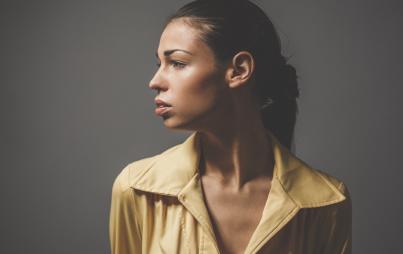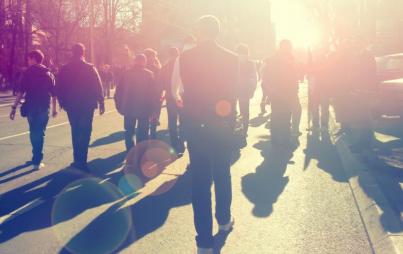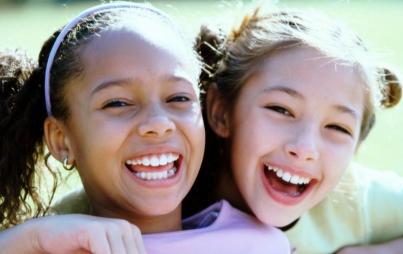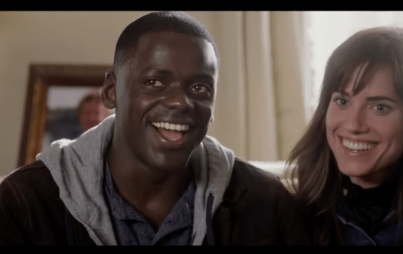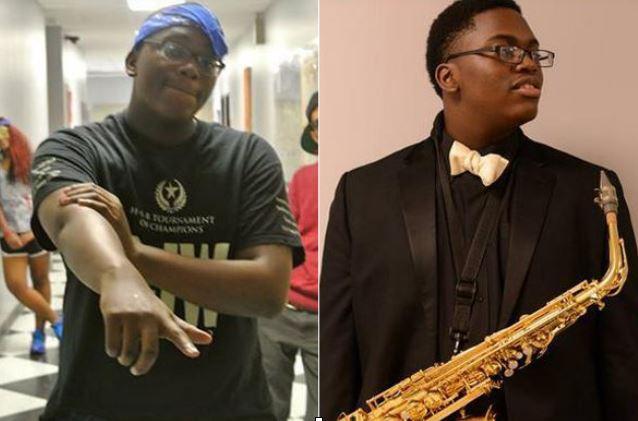
Michael Brown—an unarmed 18-year-old boy—was gunned down by a police officer in the streets of Ferguson, Missouri this past Saturday. The racialized shooting (of a black teen by a white cop) has sparked local protests against police brutality in the St. Louis suburb, which has seen rubber bullets fly, tear gas dispensed, and even a no-fly zone established. And while locals are taking to the streets, national outcry is fomenting (of course)--nowhere more powerfully than on Twitter. And we’d fare far better as a society if we paid very close attention.
Essentially in the immediate aftermath of the news about Michael Brown breaking, Twitter users began planning a National Moment of Silence (under #NMOS14) to honor the murdered teen and draw attention to the pressing issue of police brutality. They also began a devastating—and immensely powerful—campaign to address, yet again, the media’s profoundly problematic racial biases—in the form of asking which picture they thought the media would use #IfTheyGunnedMeDown.
What biases, you may ask? Well, there’s an overwhelming amount to run with on this front. Like the fact that the media has been obsessed with identifying Michael Brown as a future college attendee—like that is a salient point when grieving the senseless death of a teen. (And why do we not fixate on college-related conversations when white children die . . .?)
But in an effort to keep this an article and not a novella, we offer up the photo national news outlet NBC chose to run in its coverage of Brown’s murder:

Why choose this picture when it’s general custom to use photos of children on their graduation days to mark their passings? Why not, say, use this pic when discussing Michael Brown’s life being brutally cut short?

It’s far, far from a one-off phenomenon, too. Remember Trayvon Martin—the unarmed child who was killed last year, his pockets stuffed with candy?
Here is how he was largely captured by the media:

When, say, this image also existed:

Enter: #IfTheyGunnedMeDown and its (necessarily!) provocative calling out of this damaging visual distortion of victims. The hashtag has been used over 100,000 times since its genesis, with thousands and thousands of black Americans uploading photos of themselves posing as the traditional “thugs” media outlets cast them as—and then them on graduation days, playing with children, performing in bands . . . you know, living their lives.
Like 17-year-old Tyler Atkins, featured in the New York Times, who posted both a picture of himself in a similar stance to the one used of Michael Brown (from a school math project for which he'd created a rap video), and then of him looking snazzy as hell in a tux, a saxophone dangling from his neck (see image above).
On the first pic, Atkins said: “Had the media gained a hold of this picture, I feel it would be used to portray that I was in a gang, which is not true at all.”
Let’s bear very much in mind both that Atkins is but a mere teenager, pushed to grapple (publicly, even) with the notion that he could be executed and cast as a gang member—and that there are millions of fellow Americans similarly grappling.
Can you imagine your teenage years marked by these kinds of fears?
Refer to “hashtag activism” as sarcastically as you wish, but there’s not much to argue with about this compelling campaign. It, like the daily activism of those failed by mainstream media sources, has inescapably cast light on the dehumanizing, systemic racism in our society. And if you haven’t considered these issues before, well, now there is a soul-crushing plethora of evidence that it certainly isn’t because they don’t exist. You’ve just been enabled by our country's media to sidestep them—with devastating consequences.
When a black man is killed every 28 hours by either police officers or vigilantes in this country, we more than owe it to ourselves to let these searing images, and the brutal, racial failings of our media industry, sink the hell in. Thanks to Twitter, #IfTheyGunnedMeDown, and the bravery of those like teenagers like Tyler Atkins, propelled by fear and constant discrimination, we’re out of excuses for not looking these issues in the eye.
To which we can only reply with an emphatic: Good.

